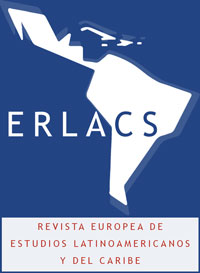Small-scale Tourism Development in Brazilian Amazonia: The Creation of a ‘Tourist Bubble’
DOI:
https://doi.org/10.18352/erlacs.9610Keywords:
tourism, tourist bubble, staged authenticity, Brazilian Amazonia, Brazil, turismo, burbuja turística, modificaciones sociales, Amazonía brasileña, BrasilAbstract
In Brazil, tourism is promoted as a means of generating employment, tax revenues, foreign exchange and investments in infrastructure. The Amazon region is thereby primarily marketed as a ‘green’ destination. One such a destination is the village of Alter do Chão in the municipality of Santarém in the state of Pará, where tourism has expanded rapidly during the past decade. Looking at the main characteristics of tourism in the study area and the actors involved, the authors show that the notion of a ‘tourist bubble’, which was developed for large-scale enclave-like resorts, may apply equally to a small-scale destination. First, it is in the sense of abstracting from historical and cultural contexts in relation to the antecedents of the local population and by commercializing the local Sairé festival as ‘staged authenticity’. Second, a ‘tourist bubble’ is emerging as a result of increasing physical and functional segregation of tourism and residential areas. As far as the local population is concerned, the creation of the ‘bubble’ primarily represents new economic opportunities. However, the introduction of ‘invented traditions’ is also easily adopted because it fits in with the ongoing ethnic reclassification process in Brazil among culturally fragmented populations in search for their ‘roots’ and lost rights. The authors conclude that in order to fully understand the complexity and dynamics of cultural and economic transformations following tourism development, it is necessary to also look beyond the ‘tourist bubble’.
Resumen: El desarrollo turístico de pequeña escala en la Amazonía brasileña: la creación de una ‘burbuja turística’
En Brasil, los gobiernos en todos niveles están promoviendo el turismo para generar empleo, impuestos, divisas e inversiones en infraestructura. La región amazónica brasileña está siendo comercializada como un destino ‘verde’. La aldea de Alter do Chão en la municipalidad de Santarém al oeste del estado del Pará, donde el turismo se ha expandido rápidamente en la última década, es un ejemplo de tal destino. Analizando las características del turismo en el área de estudio y los actores involucrados, las autoras muestran que la noción de ‘burbuja turística’ se aplica tanto a destinos turísticos de pequeña escala como a complejos tipo enclave a gran escala. Primero, porque en la comercialización del festival de Sairé se abstraen los contextos históricos y culturales propios de la población local. En segundo lugar porque la intensificación de la segregación física y funcional entre las áreas turísticas y residenciales ha provocado una ‘burbuja turística’, aumentando los precios de terrenos residenciales en el centro de la villa. En lo que concierne a la población local, estos desarrollos representan nuevas oportunidades económicas. Sin embargo, las ‘tradiciones inventadas’ son fácilmente adoptadas porque coinciden con el proceso de reclasificación étnica actualmente en curso en Brasil entre grupos de la población socialmente fragmentados y a la búsqueda de sus ‘raíces’ y derechos perdidos. Se describen varios otros efectos, como las consecuencias positivas y negativas en las esferas ambientales, económicas y sociales. Aunque la balanza del desarrollo del turismo en la aldea es positiva en la percepción de los habitantes locales, más expansión engendra el riesgo de degradación ambiental irreversible y la exclusión de los inmigrantes pobres de comunidades vecinas que buscan empleo relacionado con el turismo. Los autores concluyen que para comprender cabalmente la complejidad y dinámica de las transformaciones culturales y económicas del desarrollo del turismo, es necesario mirar más allá de la ‘burbuja turística’.Downloads
Published
Issue
Section
License
Copyright Notice | Nota de derechos
ERLACS - The European Review of Latin American and Caribbean Studies applies the Creative Commons Attribution 4.0 Unported License (CC BY 4.0) to all articles, published in or after April 2013.
ERLACS - La Revista Europea de Estudios Latinoamericanos y del Caribe aplica la licencia Creative Commons Attribution 4.0 Unported (CC BY 4.0) a todos los artículos publicados en abril de 2013 o posteriores.




